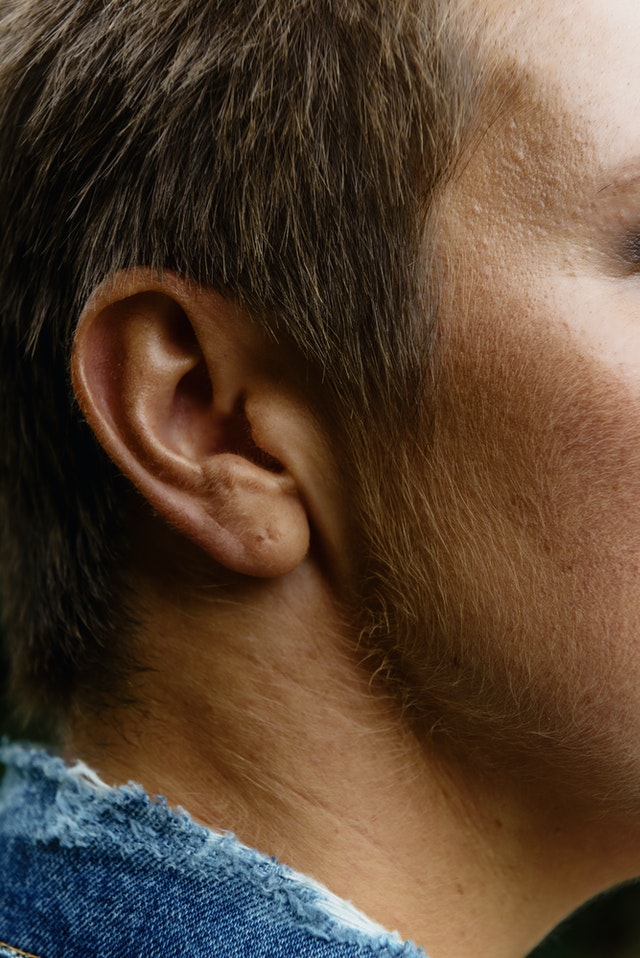Drugs/Therapy
Treatment Methods for Tinnitus in 2021

(Photo : Treatment Methods for Tinnitus in 2021)
Ringing, buzzing, and other faint but nonexistent sounds in the ears are the most common tinnitus symptoms. While generally harmless and temporary, tinnitus can progress or become more frequent, which can cause immense frustration or distress.
However, tinnitus can indicate hearing loss - and its presentation through phantom noises like buzzing, hissing, ringing, and clicking can be additionally distracting and distressing.
Explore Life-Changing Tinnitus Treatments This Year
While it may be hard to treat something that does not exist, it's comforting to know that there are new, innovative treatments for tinnitus. These new treatments can give you a new lease on your hearing - clear and free of these ringing and buzzing noises, so you can focus on sounds that are real and do matter. It's time to hear better and eliminate the stress and hearing difficulties brought on by tinnitus.
What causes tinnitus?
The exact cause of tinnitus is not fully known, and many factors associated with it are even outside the scope of audiology or the science and medicine of hearing. These include infections, injuries, and other underlying health conditions that cause chronic tinnitus.
Another leading cause of tinnitus - and one that's more familiar because it's also responsible for hearing loss - is prolonged exposure to loud sounds. While tinnitus is rarely a sign of hearing loss, both can be noise-induced. It occurs because of damage to hair cells, which prevents them from moving in response to sound waves. As a result, they cannot detect sounds for the auditory nerve to send to the brain. The double condition of tinnitus and hearing loss can severely impact your hearing health and quality of life.
What are the best tinnitus treatments?
It's important to know upfront that there is no single cure or remedy for tinnitus. There is currently no clinically proven way to eliminate these ringing, buzzing, and whistling noises fully.
The good news is, though, there are ways to manage them, including a range of hearing treatments, lifestyle support, and treatment of underlying health conditions. These treatments help alleviate severe and chronic tinnitus symptoms by reducing the perceived intensity, presence, and distress brought on by the constant noises.
1. General good health
In many patients, tinnitus is stress-induced. Ringing and buzzing grow louder and more frequent due to stress. To manage stress-induced tinnitus, you can engage in various wellness activities, such as exercise, yoga, walking, meditation, and breathing techniques. It's essential to maintain good emotional health through leisurely social activities with family and friends.
2. Hearing aids and cochlear implants
Since hearing loss and tinnitus often go hand-in-hand, hearing treatments may be doubly beneficial. Hearing aids, cochlear implants, and other sound amplification devices commonly used to help people with hearing loss can also provide relief from tinnitus.
Hearing aid devices are designed with masking and attentional effects. These amplify essential sounds in a given environment, which helps wearers focus on communication. In the process, this masking effect reduces the perception of noises caused by tinnitus.
3. Sound-based therapies
Since tinnitus presents as ringing and buzzing noises with no external source, sound-based therapies using actual external sounds can dispel the perception of phantom noises.
By giving patients external sounds to listen to, they are less likely to perceive and react to tinnitus, which reduces their intensity and effect. These sound-based therapies are administered through sound-masking devices, hearing aids, Notched-Music devices, and sound and sleep apps.
4. Behavioral therapies
Tinnitus presents with phantom noises that occur in the brain. Its impact on patients depends on how it is perceived, making a patient's emotional response a key factor in its persistence. Tinnitus becomes bothersome and distressing when it gets to patients, such that it is perceived as loud and distracting.
Behavioural therapies address the emotional reaction to tinnitus. Their goal is to alter how ringing and buzzing noises are perceived, so they become less disruptive and distressing.
Behavioural therapies like Cognitive Behavioural Therapy (CBT), Mindfulness-Based Stress Reduction (MSBR), Acceptance and Commitment Therapy (ACT), Tinnitus Activities Treatment (TAT), Tinnitus Retraining Therapy (TRT), and Progressive Tinnitus Management (PTM) reduce attention paid to tinnitus. They help you cope by devising alternative thinking and behaviour patterns that change how you perceive tinnitus symptoms.
5. Drug therapies
While there are no certified medicines for treating tinnitus, patients can ask their doctor about specific drug therapies. If your tinnitus is causing heightened stress and anxiety, your healthcare provider may prescribe antidepressants and anti-anxiety medication with psychoactive effects to treat behavioural issues related to tinnitus. Like behavioural therapies, these drugs can alter how you perceive tinnitus symptoms, so they become less distracting and disruptive.
6. TMJ treatments
Tinnitus presents in many forms due to a range of causes. Musculoskeletal factors, like temporomandibular joint (TMJ disorder) or a misaligned bite, can manifest in teeth grinding and increase tinnitus sounds.
Your hearing healthcare provider can determine whether musculoskeletal factors cause your tinnitus and refer you to a qualified professional for dental treatment to relieve symptoms. Obstructions in the ear - like earwax blockage - may be removed for further relief.
7. Bimodal neuromodulation
This tinnitus treatment involves a noninvasive device that combines sounds with zaps applied to the tongue. Tinnitus relief is made possible by electrical stimulation, as touch-sensitive neutrons in the tongue and face activate the auditory system's neurons. The combination of zaps and sounds then rewires the brain circuits associated with tinnitus and offers relief from the distress caused by the constant ringing and buzzing sounds.
8. Cutting-edge experimental therapies
Tinnitus research is ongoing and ever-evolving: hearing healthcare experts remain perplexed by this condition and seek to understand it to improve patients' hearing and quality of life. Many of these new, cutting-edge treatments are still in development. You can explore them with the help of a certified and experienced audiologist, who will work with you to manage your tinnitus symptoms.
Discover these cutting-edge tinnitus treatments:
-
Repetitive Transcranial Magnetic Stimulation (rTMS): a form of electromagnetic stimulation, this has been shown to reduce the perception, and as a result, the severity of tinnitus
-
Transcranial Direct Current Stimulation (tDCS): a non-invasive electromagnetic treatment designed to minimize the neural hyperactivity underlying tinnitus, which contributes to its increased perception and adverse effect on everyday life and hearing health
-
Deep Brain Stimulation (DBS): this invasive procedure involves stimulating the brain with electromagnetic therapy, which can potentially target the source of tinnitus stimuli since these sounds occur in the brain
-
Brain Surface Implants: this involves implants and electrodes surgically positioned on the exterior of the brain to identify and isolate stimuli potentially causing tinnitus
-
Vagus Nerve Stimulation (VNS): involves an implanted electrode to apply electrical stimulation on the vagus nerve to relieve tinnitus.
Managing Tinnitus with Good Health
Early on, tinnitus can feel as if your mind is simply playing tricks on you. While it is precisely that in the absence of an actual, external sound source, tinnitus is also a real hearing health concern - one that needs to be managed effectively for relief from discomfort and distress.
Many established and emerging methods promise tinnitus relief, but it's also essential to take stock of your overall health and well-being. There is no substitute for the long-term benefits of a healthy diet, regular exercise, enough sleep, and stress relief on your health, of which good hearing is a crucial part.
Good health is vital as many tinnitus cases are stress-induced and exacerbated by underlying health conditions, so make sure to do everything you can to stay healthy and improve your lifestyle.
* This is a contributed article and this content does not necessarily represent the views of counselheal.com









Join the Conversation